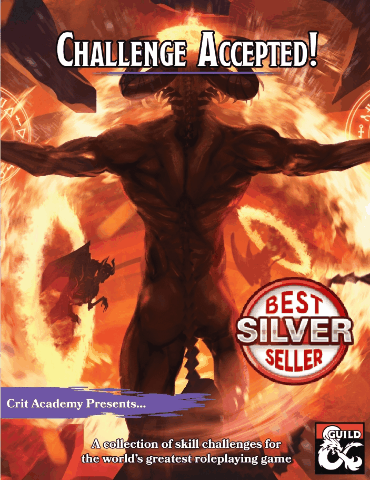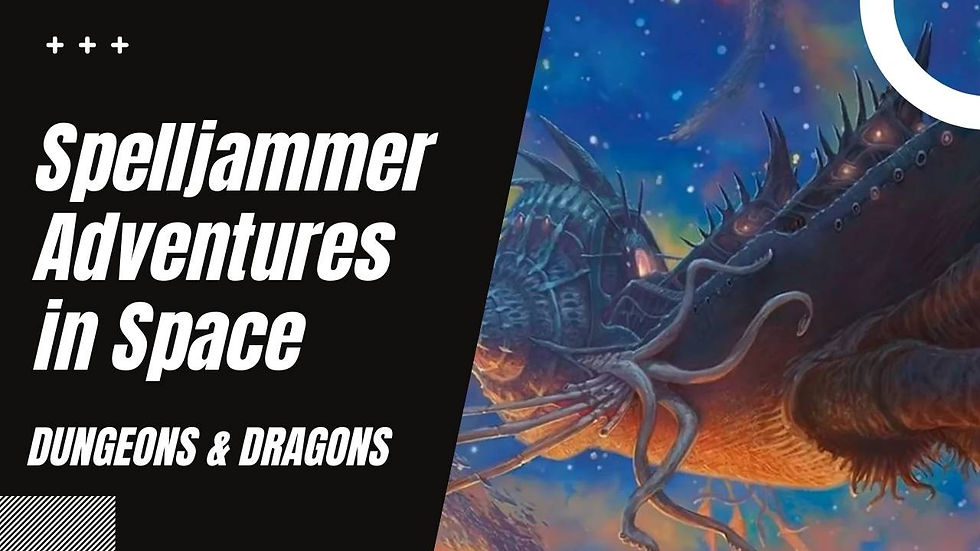Player-Driven D&D Campaigns
- Justin Handlin

- Mar 17, 2022
- 4 min read

In the world of Dungeons & Dragons and other fantastic Roleplaying Games, it’s most common for the Dungeon Master to decide all the details of the plot. Regardless of the medium; novels, movies, or even RPGs, the plot propels the characters and stories from one encounter to the next. In most cases, the players themselves have little or no control over what the elements of the story contained. Sure, they might get to choose which door to go through to exit a room, or which fork in the road to take to wherever. But in the grand scheme of things, these options are placed there by the Dungeon Master.
Is it possible for the DM to empower the players with the responsibility of deciding what they do throughout the story and campaign? Once, again, far beyond choosing a simple path down a fork in the road. What I’m suggesting is a campaign entirely driven by the player’s characters and their goals. Can it work? Absolutely it can! In fact, you would be surprised at how well it can engage the players, relieve some work and stress on the DM, and more importantly, ensure everyone has a great time.
It’s simple really. The players decide on the goals of their characters. Typically at least two, a short-term and a long-term. For example, a player may decide that her fighter is going to open up a school for training any students who are interested in learning a particular weapon or style of fighting. Beginning at lower levels, she might spend the majority of her short-term goal meeting with any and all weapon masters that can be found during her travels. Building up relationships and connections that she can leverage in the success of her martial school. This includes some of the most well-known. Using her experiences with them to help build a reputation. Of course, this can certainly go beyond just masters of weapons. She might also build contacts with weapon and armorsmiths, alchemists, and even magic users. Utilizing these resources to ensure her school has everything a potential pupil might need to aid them to success.
Get a Complimentary Copy of One of our Best-Selling 5e Supplements
Make sure to subscribe to our newsletter so we can help you on your future adventures. Newsletter subscribers are also entered to win cool prizes each and every week. Check out our fellowship members for more great content. Visit our Youtube channel for our show episodes, actual play episodes, and our tips & tricks videos. Support us on Patreon to get weekly Dungeons and Dragons loot!
When the campaign begins, or perhaps before then. She shares her character’s goals with the DM as well as the other players. This allows the DM to build out encounters and opportunities throughout the campaign for the character to achieve some of these goals. What’s great about it, the DM doesn’t need to dangle plot hooks like a carrot on a stick. They already know EXACTLY what the player and their character are likely to seek out. This motivation makes building engaging adventures extremely easy for any DM. For instance, if her character arrives in town and seeks an audience with the local blademaster. In this case, the blademaster went to train under the great falls in the White Spine mountains. He was expected to return over a week ago. In this example, it’s extremely easy for the players to know “Oh, we should certainly look into this. She won’t likely leave until she meets with the blademaster.” The hook and motives are already tied together to drive the characters to action.
Now, this is obviously a long-term goal with easy short-term opportunities. This makes for the perfect opportunity to constantly remind the players and their character’s the motivation of this character. Remember, the primary job of the DM in a player-driven campaign such as this is to provide the players with the “medium” in which to achieve their goals. Thus, if the characters are interested in building a barracks and helping train warriors, it’s the DM’s job to create a city and opportunity where they can achieve that goal. This includes all the interactions that come with it. New pupils to train, requests for students to take on quests, or even military conscription of those with a semblance of skill with a weapon. This can even include underhanded competitors, accidents such as fires or tornados, and the worse kind of evil, tax collectors.
Now, player-driven campaigns come with a lot of benefits. The most obvious mentioned as saving DM prep time, building great character arcs, and fully engaged players to name a few. Of course, that also means that there are a few drawbacks. The most obvious being character motivations that are way too far apart. This can make motivations for going on particular adventures a bit troublesome. But the largest risk is the focus needs to be spread evenly. With player-driven campaigns, if the DM isn’t careful, you can easily get caught up in focusing on one player’s character too much. Thus leaving others out of the spotlight. This is certainly something you want to avoid if at all possible. This also means a campaign can become multiple campaigns with multiple story arcs if the DM tries to do too much all at once.
Still, the advantage of having the players feel like they are not only part of the story, but helping to craft it can be an absolutely rewarding experience. When players feel like they are writing their own destiny they will be far more engaged and motivated than just sharing pages of lore that the DM wrote after dinner one night. Further, the player’s setting their own goals only leads to a more immersive roleplaying experience for everyone at the table.
Thank you for reading our blog. If you enjoy the content and want to support us, visit our store or follow us on social media, join us on discord, youtube, and leave us a review.
Keep your blades sharp and spells prepared heroes!
*Crit Academy is an Affiliate of Amazon, DMsguild and DriveThruRPG*





















Comments